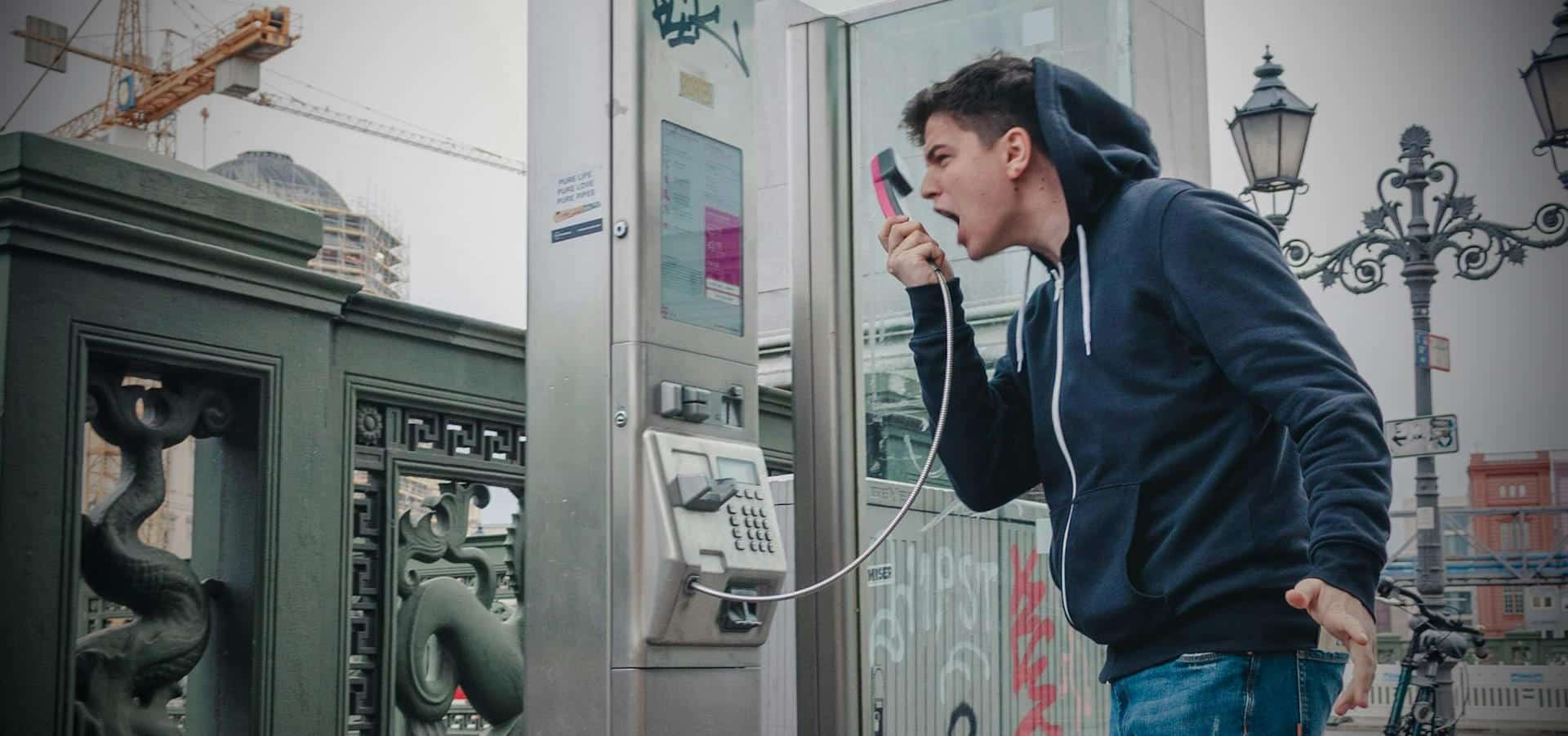Suppressed strength and lack of motivation – symptoms of an angry mindset
8 min reading time | published on: 20.08.2024
The Enneagram provides knowledge that reveals deeper connections between symptoms that many people experience in their lives: depression, negativity towards themselves, tiredness, lack of energy on the one hand – uncontrollable outbursts of anger, being under pressure and violent fantasies or actions on the other.
Angry thoughts often dominate our inner space in the form of, for example, criticism, condemnation, thoughts of revenge. We may not even notice that anger is at play here, because we associate it with a tangible outburst and not the many small, anger-driven thoughts and actions.
Flowing force or personal power?
The Enneagram describes one of the three basic forces of life as the “destructive force”. It has its natural place in the cycle of birth, lifespan and death. The force of death destroys the old, that which no longer has life, and thus creates space for new birth. We can see this principle in material life as death, which at some point overtakes everything created and destroys it in its original form. And we find it – and this is the more difficult part – also in finer levels that are not so easily visible to us. A relationship that dies because there is no real, fresh life left in it; a job that comes to an end; a wish that is rejected; a feeling that is not reciprocated; a belief that is shaken. Death acts everywhere as a more natural renewer – but it also affects our ego in its ability to hold on and resist a natural end.
Resistance to what flows, holding on to what we know – that is our personal position of power. In the language of the Enneagram, this countermovement is called anger. Anger describes a holding on to the force that would ensure that everything remains in flow and changes. We would rather suppress our power, control or forget our impulses, turn against ourselves or others than let go and go with the flow.
Dealing with anger
“As strengthening and powerful as the release of anger may feel from the perspective of the self, the remorse and guilt of conscience are just as weakening when it is over, and these are then denied. ‘Rage begins with anger, and ends with remorse.’ The Roman writer Publius Syrus from the 1st century B.C. already knew this…”*
We pay a price for both the suppression and the acting out of this fiery force within us. Almost no one deals with anger or rage naturally. For most of us, an outburst of anger (especially as an adult) is naturally accompanied by the condemnation of another person. We often feel condemned ourselves and see ourselves as having the “right” to be angry. It is inconceivable for us that anger is expressed and that love and respect flow from it. So what we experience as anger is usually a form of emotional charge that is connected to a history of injustice, injustice or powerlessness. We try to tame this seething volcano inside us, but sometimes our impulse control fails and the fire breaks out. This creates guilt and a renewed attempt at suppression. In all of this we feel powerful for a short time, but mostly helpless, tired, resigned and weak. What can we do?
The problem lies in doing
The difficulty in dealing with anger lies precisely in the fact that we want to avoid it. It is the interference with this force that prevents it from flowing freely through us, from being available to us as an inner strength and source of power and from working in a way that we do not have to control. Natural anger, which is free from an angry history, connects with the heart and “does something good” – without us doing it.
However, since this non-doing is much more difficult, because it is unknown to us, it makes a lot of sense to to first ask ourselves what we are doing. Am I conflict-averse, do I avoid confrontation and suppress my power? Am I openly aggressive, do I act out my anger and prevent love? Do I simply forget my anger and live in false harmony – which then eventually turns into the opposite? Do I feel my anger as constant condemnation and preoccupation with other people’s affairs? Am I simply comfortable and lazy and don’t want to have anything to do with this whole issue?
Natural anger is inner fire
Natural anger makes us awake, lets us ask uncomfortable questions, lets us not be deterred by obstacles and feel the will within us, to get to the bottom of things. We can acknowledge that anger is, in the truest sense of the word, a “hot potato” and has a deep meaning for our development as a human being, which is only possible if change is allowed to happen. “Anger is blind,” as the saying goes, and everyone has had the experience of losing consciousness in the heat of anger. It is possible to regain this awareness and thus experience an unknown encounter with the inner fire:
“If you want to know the nature of anger, you must penetrate to the very core of anger and learn how to linger there. Exactly where it is hottest. I call this center the glow of anger. And when you explore the center of anger, you discover that it is not necessary to do anything. Here and only here is the absolute awareness of anger.”*
References in the text:
*from “Anger – The Fight Against Reality” by OM C. Parkin, advaitaMedia
Recommended literature on the topic:
OM C. Parkin: Face to face with yourself (German)

